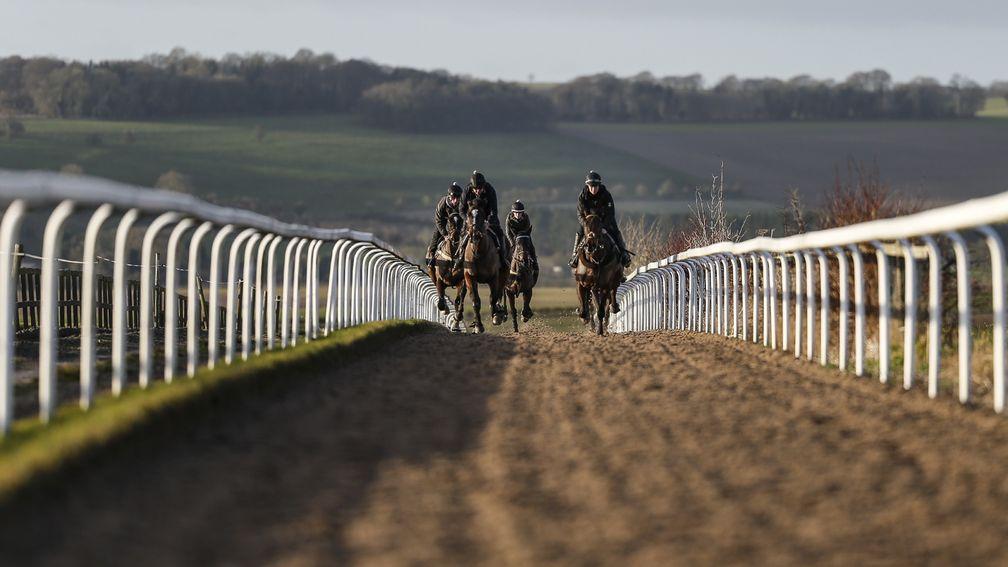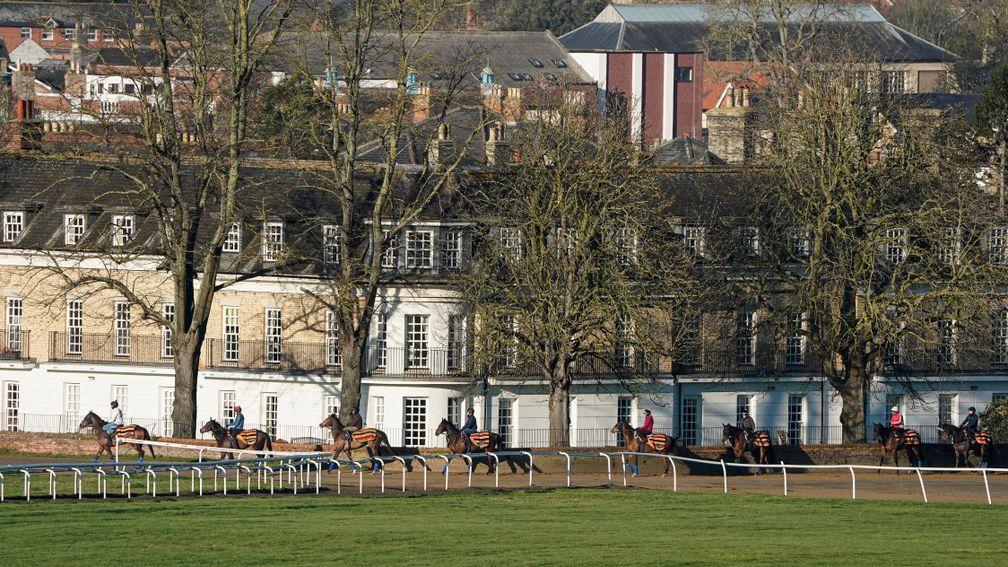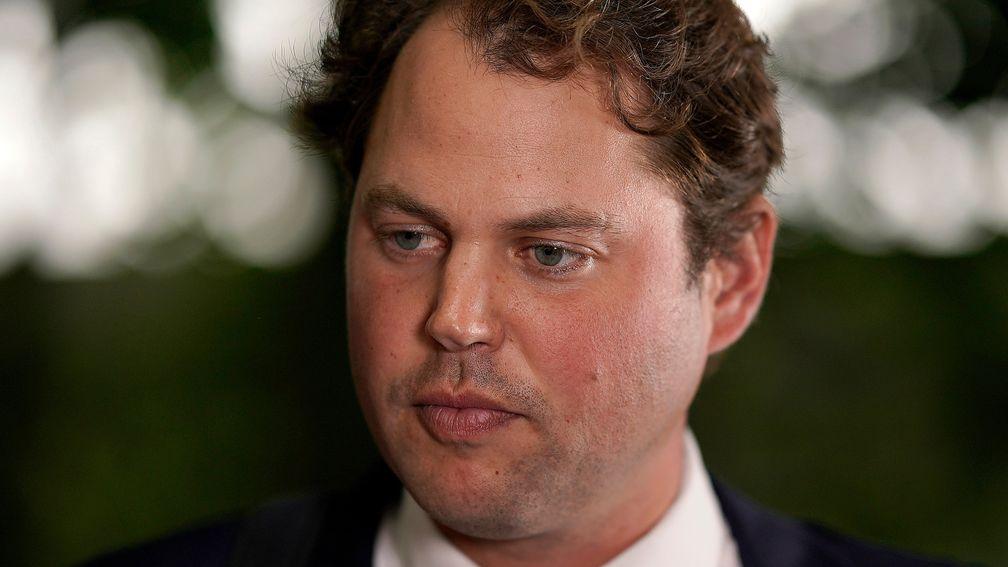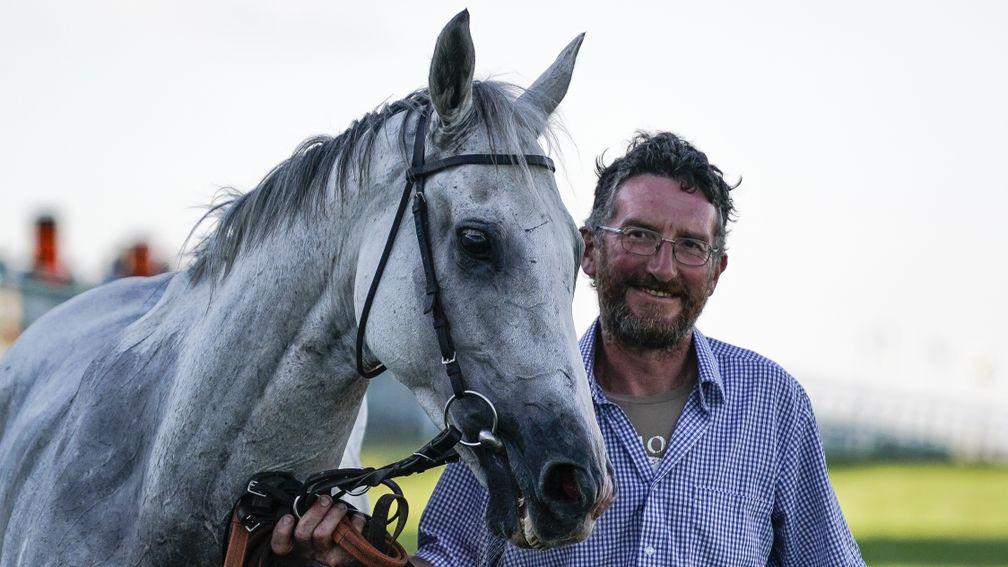Guidelines issued for trainers to maintain horse welfare during lockdown

The BHA has advised trainers on how their horses can be looked after and exercised during the coronavirus pandemic with strict guidelines on social distancing and increased hygiene measures.
Racing has been suspended in Britain until the end of April but yards have been encouraged to maintain the fitness of their horses, with stable staff and work riders allowed to travel to work despite restrictions announced by prime minister Boris Johnson on Monday.
The BHA statement read: "We are working with Defra to ensure we are interpreting their guidance correctly. Our current understanding is that horses can continue to be exercised as usual, provided guidance on social distancing and hygiene is strictly adhered to.

"Staff at yards must follow government advice relating to social distancing when outside – remaining at least two metres apart and avoiding gatherings of more than two people, apart from members of their own household, at any time."
A number of Flat trainers have shared updates online outlining the changes they have made to maintain high standards of hygiene and distance between their staff while in the yard and on the gallops.
Newmarket-based trainer Charlie Fellowes explained how the cancellation of racing has impacted the way he exercises his horses.
"I can only speak for myself but mine are just cantering," he said. "I'll probably allow some unraced three-year-olds to do a bit more so when we get the green light to race they've learnt a bit and know their job, rather than me having to give them an extra two months.
"Everything will be done within the boundaries. If by maintaining their fitness you are jeopardising the distancing between humans then you shouldn't be doing it. We'll adhere to the rules and maintain thorough hygiene levels to prevent us from putting our staff's health at risk or putting them in a position where they could spread any potential virus."

The cancellation of racing came just before the commencement of the Flat season and Fellowes believes this means many horses are likely to have already achieved a sustainable fitness level.
"When racing stopped most horses were probably around 75 per cent fit," he said. "As a result, the ones who have run before can just carry on doing what they're doing. They don't need to gallop. They can just canter away and they'll maintain their fitness level. If I wanted to they'd be two or three weeks off being ready to run.
"Had the halt to racing come earlier, say in January when the majority of Flat horses were pretty unfit, it would have been interesting to see how trainers went about their business. As it happened just as the season was about to start most of the horses are relatively fit anyway so there's not much for us to do."
That view was shared by fellow Newmarket trainer John Berry, who argued that maintaining equine physical and mental welfare would not be covered by them being indefinitely confined to their stable.
"The primary justification for us keeping going is because the horses need to be looked after," he said. "In the same way a responsible dog owner ensures their dog gets exercise so they don't go crazy, a responsible horse owner will make sure their horse gets the same.
"It would be feasible for some smaller or rural stables to just put their horses out in the field, as I have done with a handful, but for many trainers that would simply not be an option.

"Exercising horses ensures they have a reasonable standard of fitness but I'm not training them as if they're going to be running in a few weeks because there's no point. It means that when we're given the go-ahead it will be straightforward to get them race-fit.
"Imagine if your doctor told you to go for a run everyday to be in good shape. Then imagine you decided to competitively take part in a ten-kilometre run in your local town. For the bulk of the time, you would be doing exactly the same thing in both scenarios. The routine would only start to differ when you get to the month before the race and you begin to put a bit more pressure on yourself.
"It is only in the final stages that you would go beyond the guidelines originally given in the first scenario. It's like that with the horses. We're putting on a programme that keeps them physically and mentally in a good position. You only significantly deviate from that when you're within a month of racing."
He added: "Why doesn't one just put them in a field – it's feasible for some trainers. For trainers in Newmarket and those who have lots – you wouldn't have the field space. Particularly those who have a lot of colts. You'd need 80 individual fields for 80 colts. Phil McEntee has taken a handful out of training. I wouldn't have the land to take everything out of training at the same time."
As of Monday people in Britain have been required to stay at home unless absolutely necessary, only leaving the house for one piece of exercise per day. This restriction was announced alongside the closure of non-essential shops and community spaces, as well as a ban on public gatherings of more than two people.
The BHA guidelines support stable staff continuing to travel to work but only where it was impossible for them to work from home.
On Tuesday the National Association of Racing Staff (Nars) chief executive George McGrath spoke of the necessity for stable staff to continue to work, if they feel comfortable to do so, to maintain the health of the racehorse population.
He said: "The sooner we get back racing the better, even if it's behind closed doors, and as such we need the horses to be ready. If we stop it would take weeks for them to get back to peak fitness."
The BHA extended advice to the racecourse staff who, in a similar vein to stable staff, may still travel to work "to perform core outdoor duties, provided requirements around social distancing and gatherings of no more than two people are adhered to".
The full BHA guidance can be read at britishhorseracing.com.
Read this next
European contingent due to be shipped out of Dubai after World Cup cancellation
Daily update to help racing industry personnel through financial crisis
Bet365 guarantee workforce pay until August amid coronavirus crisis
Keep up to date on the must-have news, tips, photos and more by following the Racing Post across all social channels
Published on inCoronavirus
Last updated
- 'We might be surprised about the racecourses that go - it's a precarious time'
- 'It's not all doom and gloom' - the long-term future of racehorse ownership
- Hysteria and dizzying change the only certainties for an industry under fire
- 'It will recover, it's only a question of when and how many casualties'
- 'I think we'll end up with fewer trainers than we've had for a long time'
- 'We might be surprised about the racecourses that go - it's a precarious time'
- 'It's not all doom and gloom' - the long-term future of racehorse ownership
- Hysteria and dizzying change the only certainties for an industry under fire
- 'It will recover, it's only a question of when and how many casualties'
- 'I think we'll end up with fewer trainers than we've had for a long time'